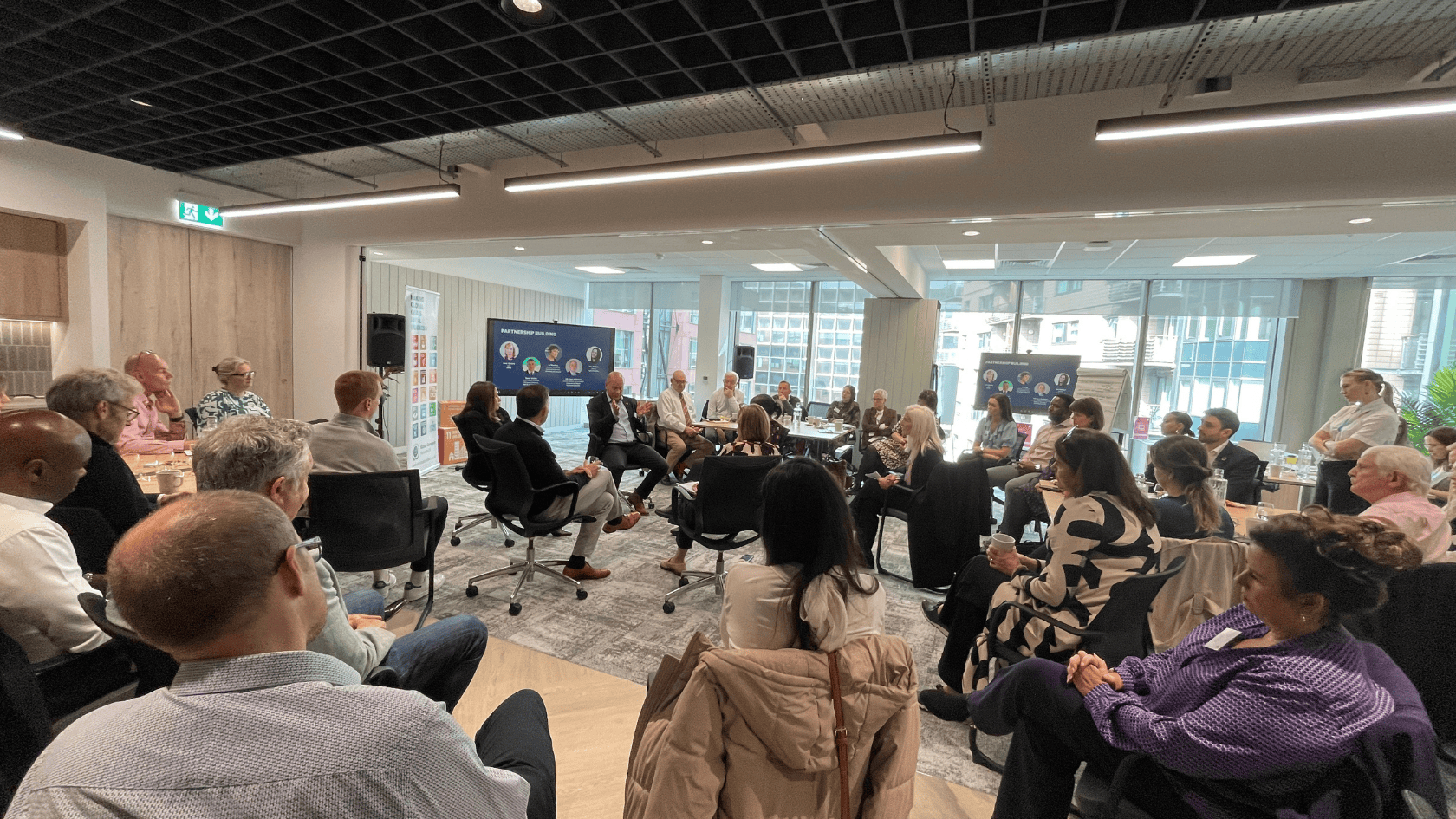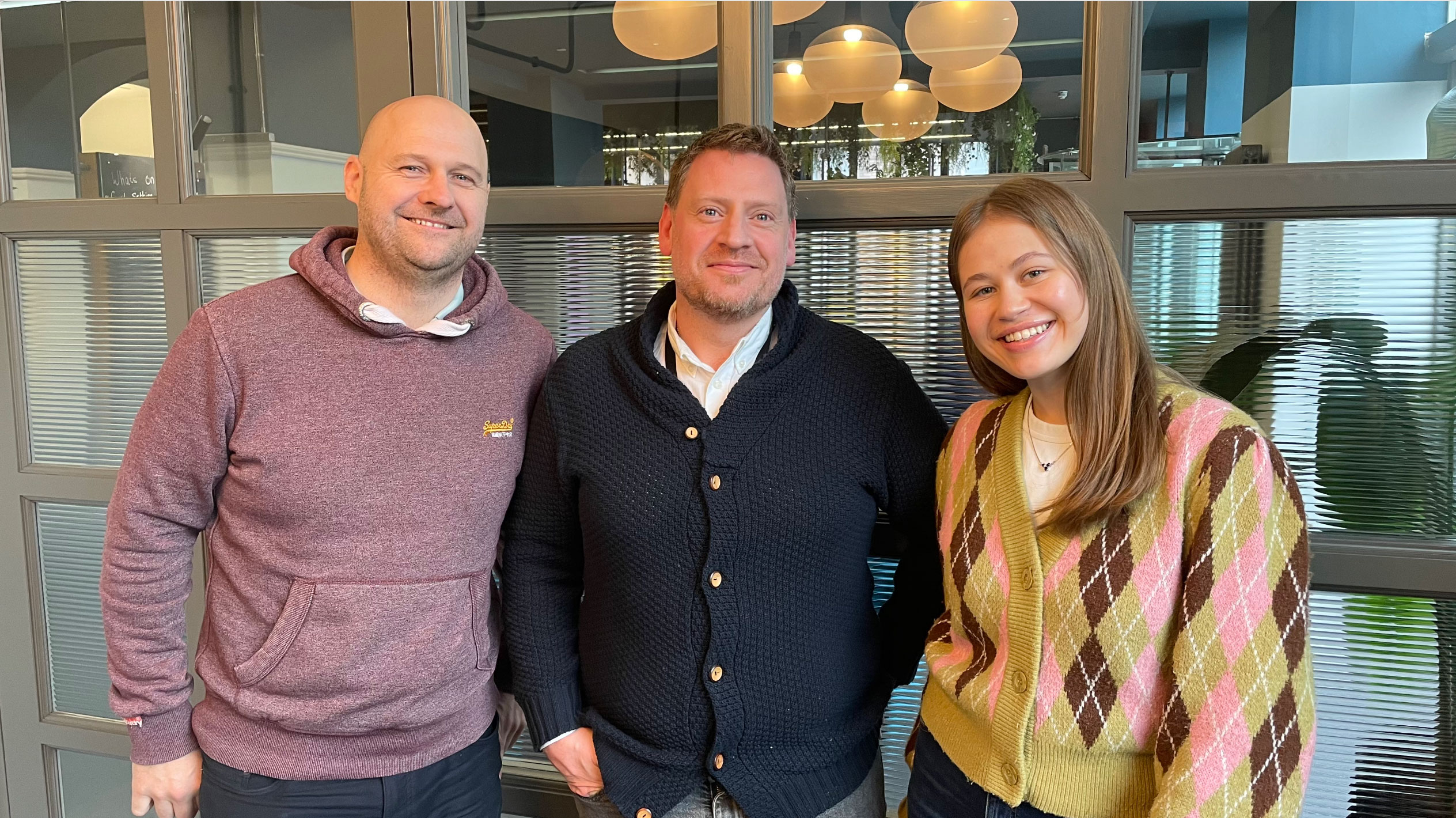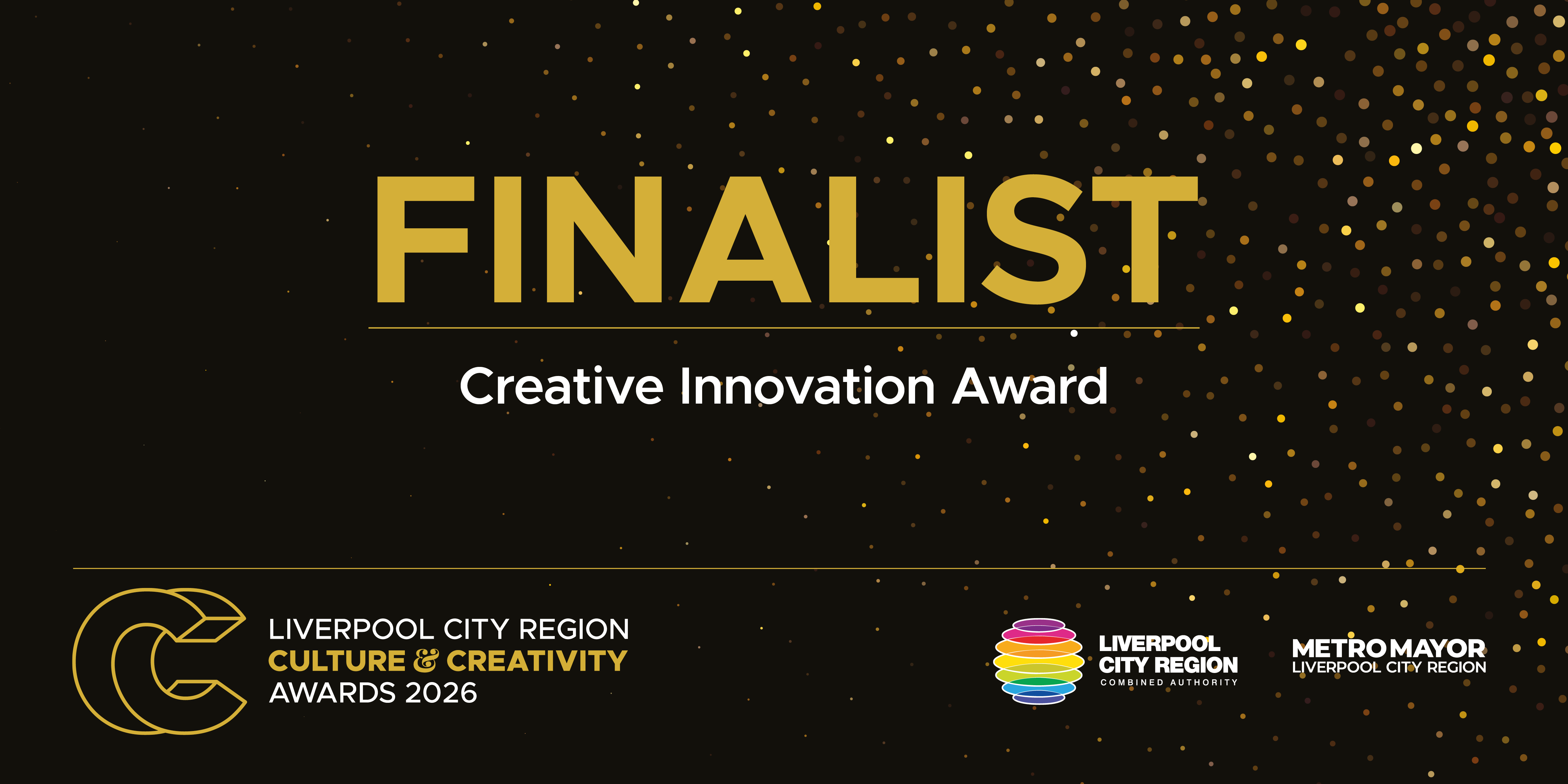From Global Goals to Local Growth: Why Liverpool Businesses Must Step Up on the UN SDGs
Unlock resilience and growth by seeing how Liverpool businesses, big and small, are turning the UN's global mandate for a better world into a blueprint for local success.

As I walked out of the recent Liverpool Sustainable Business Summit, a sense of urgency mixed with genuine local optimism was visible. The day’s central theme wasn't simply about being 'green' or 'ethical'; it was a decisive call for every enterprise, from the smallest independent outfit like us here at GoodShip* to the biggest corporate entity, to embed the United Nations Sustainable Development Goals (SDGs) into the heart of its operations.
The 17 SDGs are the world’s shared blueprint for a better future, covering everything from climate action to gender equality, and as one speaker, David Connor, Founder of the 2030hub, pointed out, “The UN is helping the SDGs refocus more away from countries and Prime Ministers, to what we can ALL do at a city and town level, every day.” This message is particularly resonant in Liverpool, a city with a rich history of global trade that now has a chance to lead on global responsibility.

The challenge, as articulated by Jo Meehan, Director of the Centre for Sustainable Business at the University of Liverpool, is that "authentic sustainability means rolling up our sleeves, not just filling out reporting templates." This means the SDGs are no longer a voluntary add-on for large corporations but a fundamental framework for resilience, innovation, and long-term commercial success for all Merseyside businesses.
"To advance the UN Sustainable Development Goals in Liverpool, we must be prepared to take informed risks, create meaningful job opportunities, and invest in education as a foundation for long-term resilience. Our focus should be on the issues we can see and feel in our communities – the micro – because this is where systemic change begins. Above all, we must ask: what do people care about, and how can we align our actions to those priorities to deliver genuine progress?"
The Business Case for the Global Goals in Merseyside
For businesses in Liverpool and the wider City Region, embracing the SDGs offers a robust path to a future-proof model. This is not philanthropy; it is shrewd commercial strategy.
- Attracting Talent and Customers: Modern consumers and job-seekers, especially across Gen Z and Millennial demographics, demand purpose. A demonstrable SDG commitment, like Liverpool FC’s ‘The Red Way’ strategy which aligns with 14 of the 17 goals, enhances brand reputation and makes a business an employer and partner of choice in the competitive North West market.
- Innovation and Risk Management: The goals highlight areas of global market failure from resource scarcity to social inequality which, in turn, signal massive opportunities for innovative products and services. Addressing these locally, as speakers noted, helps “future-proof your business in a rapidly changing world.”
- Access to Finance: Investors, lenders, and larger supply chain partners are increasingly scrutinising ESG (Environmental, Social, and Governance) performance, which aligns directly with the SDGs. Transparency and clear action, therefore, directly improve access to capital and contracts.
A Simple Guide to the 17 SDGs and Merseyside Action
The 17 Goals cover the three pillars of sustainable development: People, Planet, and Prosperity. Below is an overview of each goal, paired with practical, impactful actions that small and large Liverpool businesses can adopt right now to make a measurable difference on a local level.
People & Society Goals (SDGs 1, 2, 3, 4, 5, 10)
These goals focus on social well-being, equality, and opportunity within our communities.
- 1: No Poverty: End poverty in all its forms everywhere.
- Action: Ensure all employees receive the Real Living Wage; partner with local financial inclusion charities.
- 2: Zero Hunger: End hunger and achieve food security.
- Action: Implement a zero-food-waste policy; donate surplus produce to local food banks or community fridges in Liverpool or Wirral.
- 3: Good Health and Wellbeing: Ensure healthy lives and promote well-being for all.
- Action: Fund mental health first aiders and employee wellness schemes; provide secure cycle storage and promote healthy commuting.
- 4: Quality Education: Ensure inclusive and equitable quality education.
- Action: Offer apprenticeships and skill-sharing schemes to local schools and colleges, particularly for young people from areas of deprivation.
- 5: Gender Equality: Achieve gender equality and empower all women and girls.
- Action: Implement flexible working policies; commit to a clear pathway for promoting women into leadership roles; conduct transparent pay gap reporting.
- 10: Reduced Inequalities: Reduce inequality within and among countries.
- Action: Ensure products and services are accessible to all demographics; commit to fair and inclusive procurement from diverse local suppliers.
Planet & Environment Goals (SDGs 6, 7, 12, 13, 14, 15)
These goals focus on environmental protection, resource management, and tackling the climate crisis.
- 6: Clean Water and Sanitation: Ensure sustainable management of water and sanitation.
- Action: Install water-saving fixtures; monitor and reduce industrial water discharge, protecting the Mersey’s waterways.
- 7: Affordable and Clean Energy: Ensure access to affordable, reliable, sustainable, and modern energy.
- Action: Switch to a 100% renewable energy supplier; install solar panels on commercial properties; upgrade to LED lighting.
- 12: Responsible Consumption and Production: Ensure sustainable consumption and production patterns.
- Action: Move towards a circular economy by designing waste out of your processes; eliminate single-use plastics from break rooms and operations.
- 13: Climate Action: Take urgent action to combat climate change and its impacts.
- Action: Measure and publicly report on your carbon footprint; set a clear, science-based Net Zero target for your business.
- 14: Life Below Water: Conserve and sustainably use the oceans, seas, and marine resources.
- Action: For coastal firms, ensure zero plastic or chemical pollution enters drainage systems leading to the Irish Sea.
- 15: Life on Land: Protect, restore, and promote sustainable use of terrestrial ecosystems.
- Action: Prioritise local supply chains to reduce transport emissions; create or sponsor urban biodiversity projects.
Prosperity & Partnerships Goals (SDGs 8, 9, 11, 16, 17)
These goals focus on economic stability, innovation, governance, and collaboration.
- 8: Decent Work and Economic Growth: Promote sustained, inclusive, and sustainable economic growth and decent work.
- Action: Champion fair contracts and safe working conditions; actively recruit through local schemes that support those furthest from the job market.
- 9: Industry, Innovation, and Infrastructure: Build resilient infrastructure and foster innovation.
- Action: Invest in R&D to create low-carbon products or services; digitise operations to reduce reliance on physical infrastructure.
- 11: Sustainable Cities and Communities: Make cities inclusive, safe, resilient, and sustainable.
- Action: Encourage staff to volunteer for local community greening projects; support local public transport and car-sharing schemes.
- 16: Peace, Justice, and Strong Institutions: Promote peaceful and inclusive societies, and build accountable institutions.
- Action: Implement robust policies on anti-corruption and anti-bribery; ensure clear and ethical business governance and public accountability.
- 17: Partnerships for the Goals: Strengthen the means of implementation and revitalise the Global Partnership for Sustainable Development.
- Action: Actively collaborate with local government, universities (like the Centre for Sustainable Business), and other Liverpool enterprises to share resources and solutions.
The Call to Collaborate
The message from the Liverpool Summit was clear: no single business, no matter how large, can achieve these goals alone. The key to success is SDG 17: Partnerships for the Goals.
As one leader put it, “We are in a global development emergency… The Goals are still within reach, but only if we act with urgency, unity, and unwavering resolve.”
For Liverpool, this means harnessing our unique spirit of collaboration. Whether it’s a small manufacturer adopting Goal 12 by using recycled materials, or a professional services firm tackling Goal 4 by offering pro-bono education to local start-ups, every action creates a collective wave. By aligning their commercial ambitions with this global agenda, Liverpool’s businesses are not just doing the right thing; they are securing their own profitable, responsible future.
Read more about our GoodShip* mission - Sailing with Purpose: How GoodShip Aligns with the UN Sustainable Development Goals.
Related articles


Explore our collection of 200+ Premium Webflow Templates


